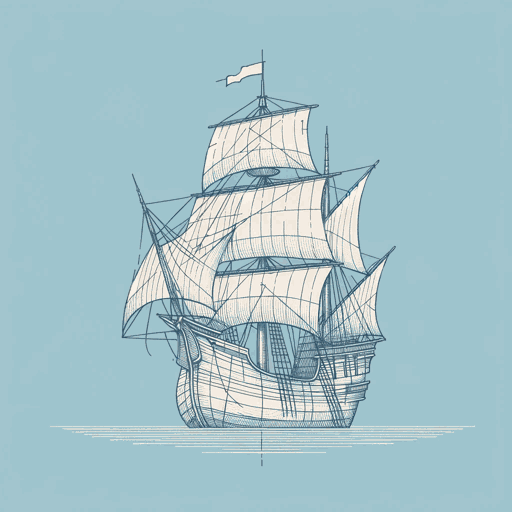69 pages • 2 hours read
Charles C. Mann1493: Uncovering the New World Columbus Created
Nonfiction | Book | Adult | Published in 2011A modern alternative to SparkNotes and CliffsNotes, SuperSummary offers high-quality Study Guides with detailed chapter summaries and analysis of major themes, characters, and more. For select classroom titles, we also provide Teaching Guides with discussion and quiz questions to prompt student engagement.
Themes
The Widespread Impacts of the Columbian Exchange
One major theme of 1493: Uncovering the New World Columbus Created is that of connection. Mann attempts to show the interweaving threads which tie everything together through global trade. The Columbian Exchange, at first glance, seemed innocent enough; Columbus set out to establish a new trade route with China. However, by landing in Hispaniola, Columbus did something that sent a shockwave across the globe, and the effects continue to be felt.
Each event and focus of the book can trace its origins back to that first voyage. Malaria, brought first by Columbus, created a motivation for the African slave trade in the Americas and, ultimately, changed the course of the Civil War. It killed countless Indigenous peoples, as well as European settlers in North America. Those areas that were most affected by yellow fever and malaria because of the Columbian Exchange continue to be some of the poorest areas in the world. Colonists also brought livestock, plants, bees, and earthworms which altered the American landscape forever, creating inhospitable climates for indigenous plants and introducing invasive species.


